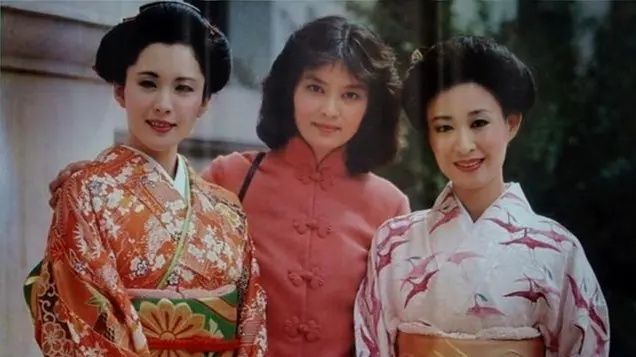In 2023, the 45th anniversary of the signing of the China-Japan Peace and Friendship Treaty, the China-Japan Exchange Forum held a seminar on China-Japan film exchanges on July 23, inviting Masako Watanabe, granddaughter of one of the founders of Japan's normalization of relations with China, former Japanese Prime Minister Masayoshi Ōhira, as well as artists, former president of the Japan-China Friendship Association, Shenyun, National Committee member Wang Zhongyi, director Li Ying, Peking University professor Wang Wan, and former deputy director of the Xinhua News Agency's World Issues Research Center Zhang Kexi, among other guests to share and exchange ideas.
At the seminar, Masako Watanabe talked about a television program she participated in as a producer for a Japanese TV station. "In 2008, China hosted the Olympics, and it was also the 55th anniversary of the launch of our TV station. In this special year, I was responsible for producing a large program called 'Women of China.' Why did I want to make this program? It relates to my childhood experience. When I was ten years old, I witnessed my grandfather Masayoshi Ōhira's visit to China, which had a profound impact on me. In 1972, my grandfather, then Japan's Foreign Minister, insisted on coming to China with Prime Minister Kakuei Tanaka, risking his life to promote the normalization of China-Japan relations amid widespread opposition in Japan. This childhood experience made me determined to devote myself to the cause of China-Japan friendship and exchange as an adult."
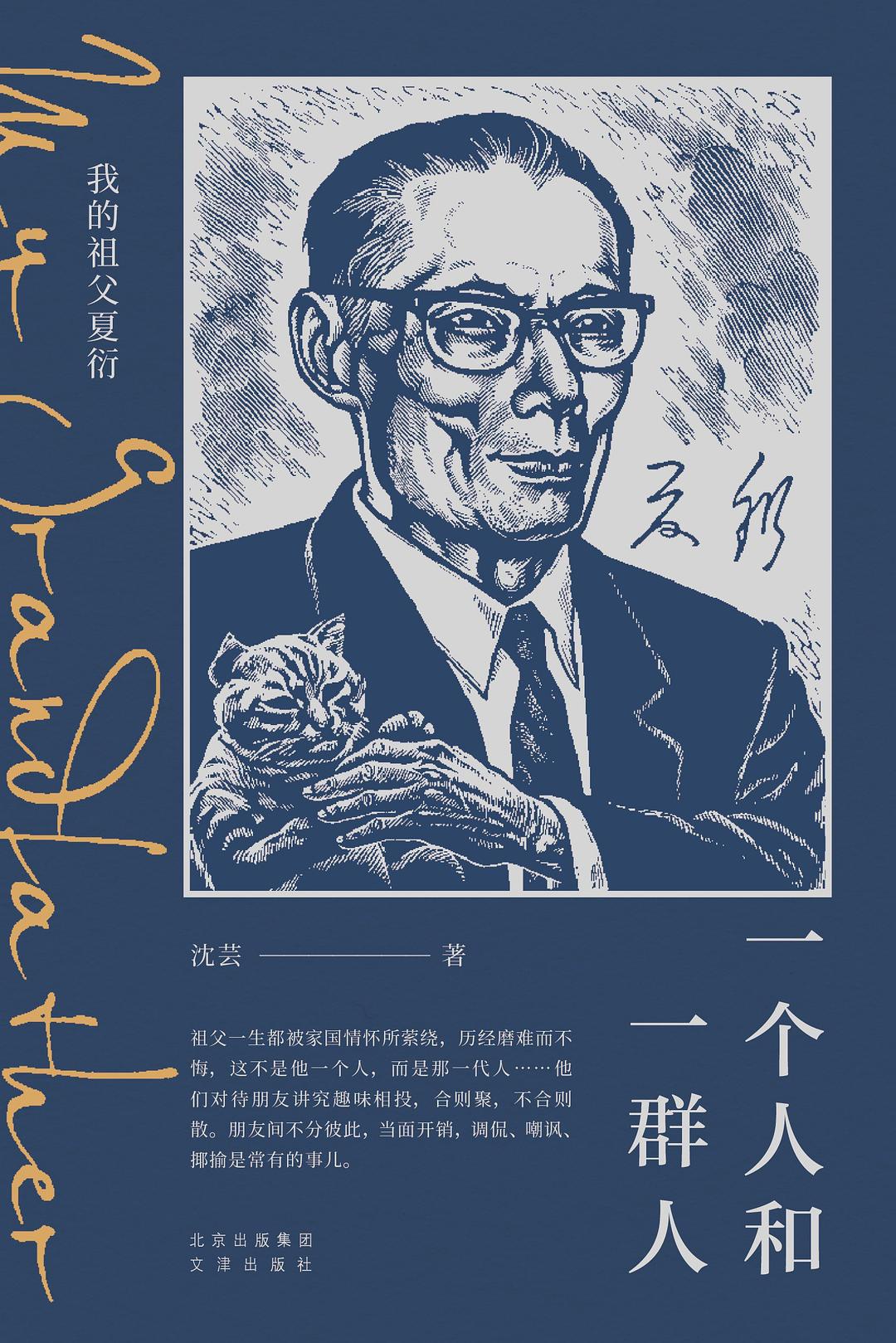
'A Person and a Group of People - My Grandfather Xia Yan' centers on 'Xia Yan in Life,' telling the story of his care and support for his family and friends, his joint efforts with comrades in his career, and the gatherings and laughter shared with friends.
Shen Yun recalled that her grandfather Xia Yan was sponsored by the state to study in Japan when he was young. In the second year after arriving in Japan, Xia Yan was admitted to Meiji Technical School in Kitakyushu, a school that trained 'gentlemen proficient in technology' for industrial development, as industrial salvation was once his ideal. While completing his studies, Xia Yan immersed himself in the sea of literature and found ideals and beliefs in literary drama. After returning to China, Xia Yan served as a director of the China-Japan Friendship Association, president of the China-Japan Friendship Association, and vice chairman of the China Federation of Literary and Art Circles, dedicated to promoting cultural exchanges between China and Japan.
Looking back over forty years, I remember the honeymoon period of China-Japan films, when there were such wonderful times. In 1978, a Japanese imported film 'The Chase' caused a huge sensation in China, and the leading actors, Ken Takakura and Ryoko Nakano, became the most beloved foreign actors among Chinese audiences. Subsequent Japanese films such as 'Homecoming,' 'Love and Death,' 'Suna-ki,' 'Human Evidence,' 'Final Song,' and 'Gorgeous Family' also caused a stir, with actors Ken Takakura, Ryoko Nakano, Chieko Baisho, Kiyoko Tanaka, Komaki Kurihara, Momoe Yamaguchi, Tomohisa Miura, and Sayuri Yoshinaga quickly becoming idols for Chinese audiences. Cultural exchanges between China and Japan were also very frequent, with photos of beautiful and handsome movie actors from both countries together becoming a beautiful landscape.
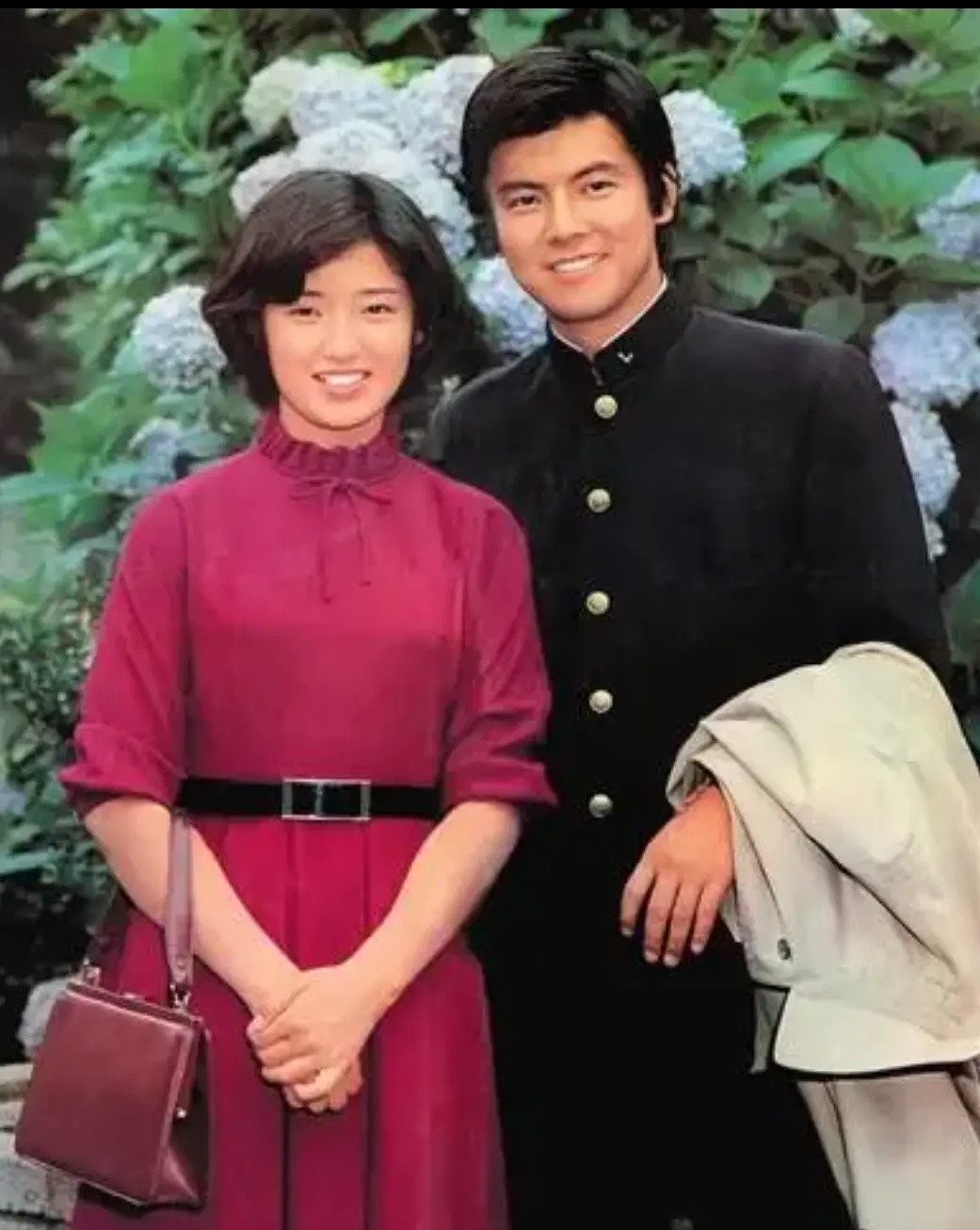
Tomohisa Miura and Momoe Yamaguchi
After graduating from Tokyo Metropolitan Hino High School in 1970, Tomohisa Miura made his acting debut in the TV drama 'Secret Squad.' In 1972, in the 'Star Birth' singing competition, Momoe Yamaguchi won second place with the song 'Carousel,' officially debuting. In 1975, after their co-starring in 'The Dancing Girl of Izu' received widespread acclaim, this recognized golden couple released 12 films including 'The Tide,' 'Final Song,' and 'Spring's Tale,' as well as the TV drama 'Blood Doubt' that made them famous throughout China.
In 1980, they transitioned from screen lovers to life partners, becoming a legendary couple. That same year, Momoe Yamaguchi retired from the film industry. Afterward, Tomohisa Miura faced a career slump for a time, but the 1985 film 'Heaven's Station' with Sayuri Yoshinaga restored his reputation. He then starred in excellent films such as 'Typhoon Club,' '1/2 Father,' and 'Turn Turn,' winning the Best Actor Award from the Japanese Film Weekly.
Honored as Japan's National Couple - the man works outside, the woman manages the home, they live in an extremely traditional way. Tomohisa Miura remains active in the Japanese film and television industry, playing the ambitious second-in-command Kato in Takeshi Kitano's film 'Outrage Beyond' in 2012, receiving unanimous praise. His latest work is the 2013 TV movie 'The Farthest Galaxy.' In 2014, on Japan's traditional 'Good Couple Day,' Japanese media selected the most admired celebrity couples among women aged 30 to 40, and the Miura-Yamaguchi couple rightfully topped the list. This top idol couple of the Showa era has won acclaim for their adherence to traditional values, and their two sons, Yutaro Miura and Takahiro Miura, have also achieved good results in music and film.
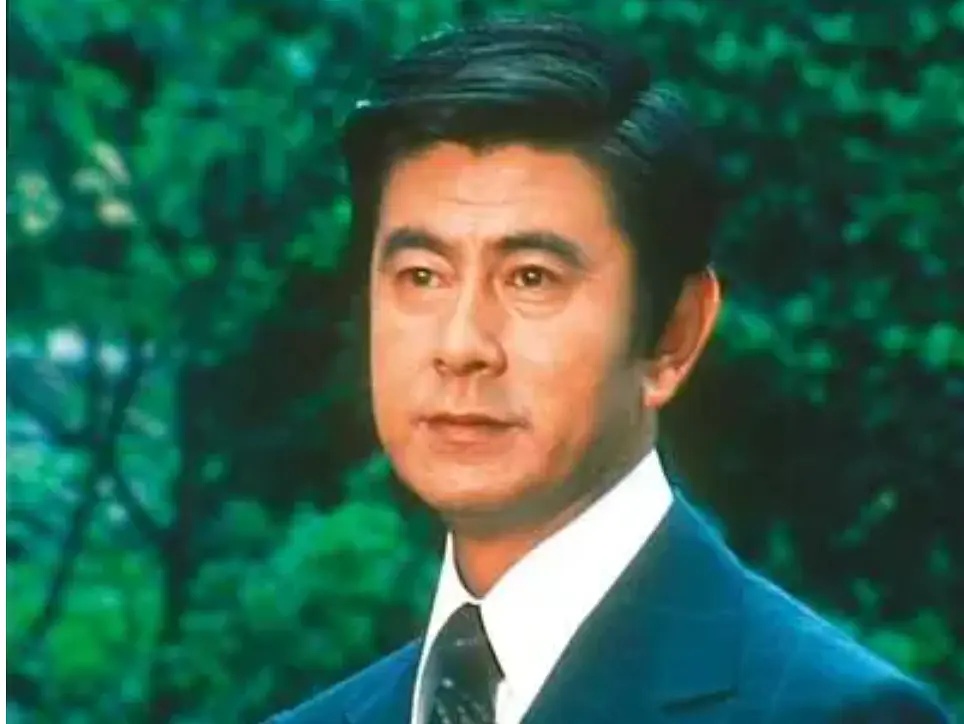
Ken Utsui - Forever Shigeru Oshima
To realize his dream of becoming an actor, Ken Utsui dropped out of Waseda University's literature department. He made his debut in 1953 in Nobuo Nakagawa's film 'Spring Water,' later appearing in comedies such as 'You Are Focused' and 'The Glorious World,' winning the audience's love. In the 1970s and 1980s, he became active on the television stage, often portraying police officers, with Chinese audiences most familiar with his role as 'Shigeru Oshima' in the TV series 'Blood Doubt,' where he convincingly portrayed a fatherly love that was both strong and delicate.
Ken Utsui worked in the industry for 60 years, filming as many as 127 movies, and his portrayals of fathers and police officers have left a deep impression. He passed away in Japan on March 14, 2014, due to chronic respiratory failure, at the age of 82. According to his wishes, the vigil and farewell ceremony were held in secret. In the 2012 'Tales of the World: Autumn Special,' he played a table-sharing lover in the final chapter, and although he only had over 20 minutes of screen time, he still moved many female viewers to tears.
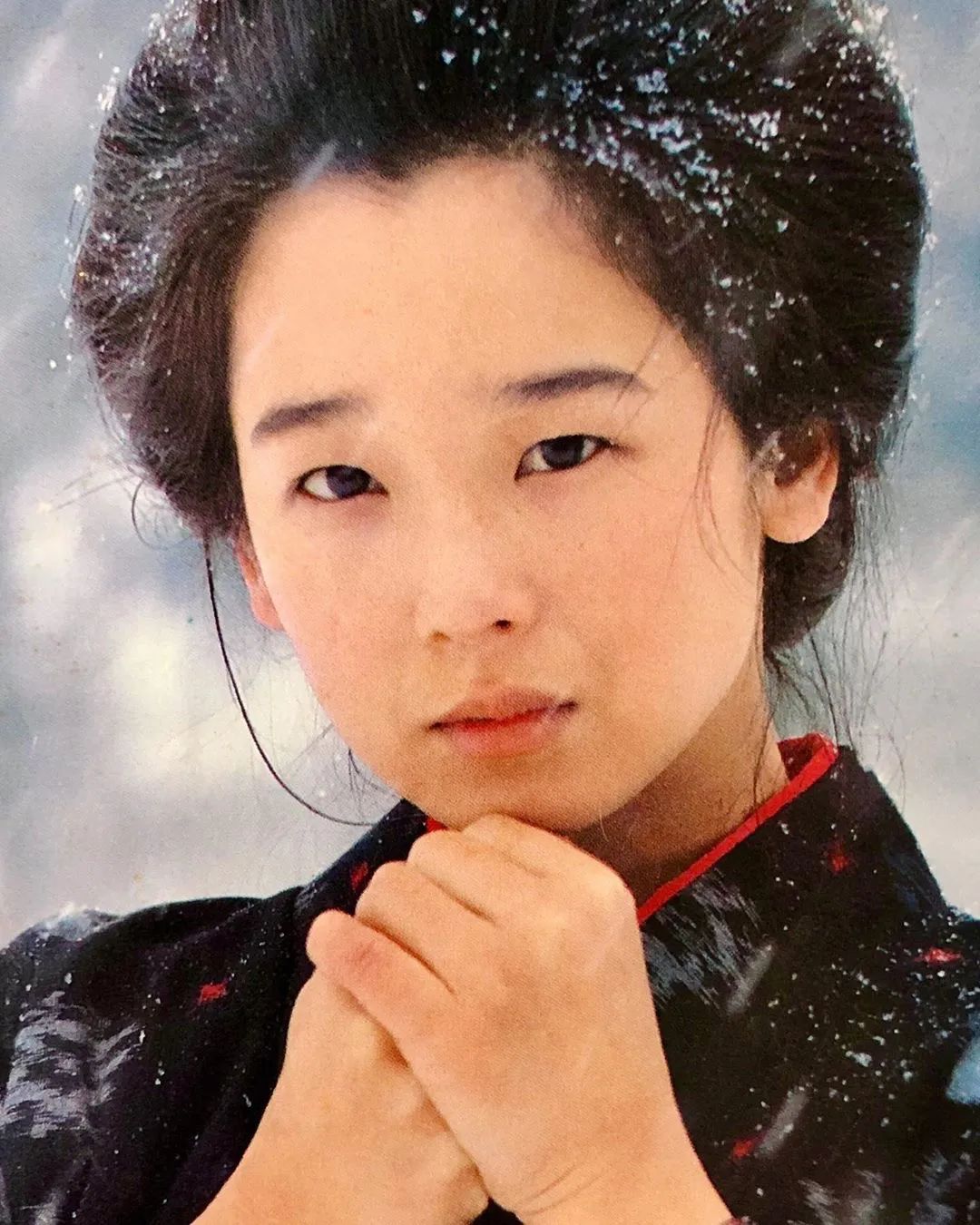
Yuko Tanaka, who debuted in 1979, quickly became a fresh force in the film industry, appearing in Shohei Imamura's 'The Ballad of Narayama' and Kaneto Shindo's 'Hokusai Manga,' winning the Japan Academy Prize for Best Supporting Actress and Best Newcomer. Although she had a promising future in film, she resolutely returned to television in 1983, bringing her accumulated acting skills from the big screen to the TV drama 'Asa.' In the drama, Yuko Tanaka played the young Asa, and after it aired, she became a hot Japanese star across Asia.
'Asa' had an average viewership rating of 52.6% in Japan, and after being introduced to China, it caused a sensation that emptied the streets. However, at the peak of her career, Yuko Tanaka did not take on any more TV dramas. In 2010, she came to China to collaborate on the TV drama 'The Sky's Brightness,' playing Empress Dowager Cixi. In interviews, she expressed reluctance to answer questions about 'Asa,' saying, 'Those are all things of the past,' but she also thanked this role for providing her with this filming opportunity.
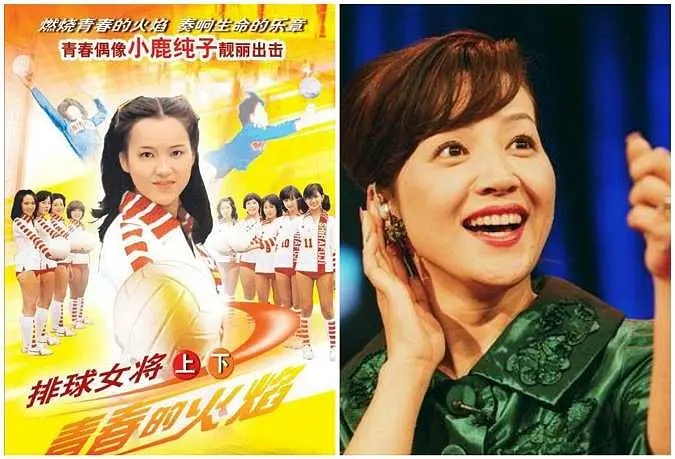
Although her father strongly opposed it, Yumiko Araki, who had dreamed of becoming a star since childhood, entered the entertainment industry by participating in a TV station talent show. Although she failed to win a place in the competition, her tearful moments left a lasting impression on the judges and audience. In 1979, with a new wave of volleyball fever rising, the TV station tailored the drama 'Volleyball Girl' for this newcomer, and her healthy and vibrant role as 'Junko' made her an instant hit. Many young viewers in China also became enamored with volleyball, with difficult volleyball moves like 'Thunderbolt' being eagerly imitated by many viewers. In 1983, just as Yumiko Araki's career was at its peak, she chose to marry musician Masayuki Tawara, who was 13 years older than her, and withdrew from the entertainment industry to become a full-time housewife. However, her mother-in-law became paralyzed after the marriage, and she began a difficult journey of caring for her sick mother-in-law for 20 years.
